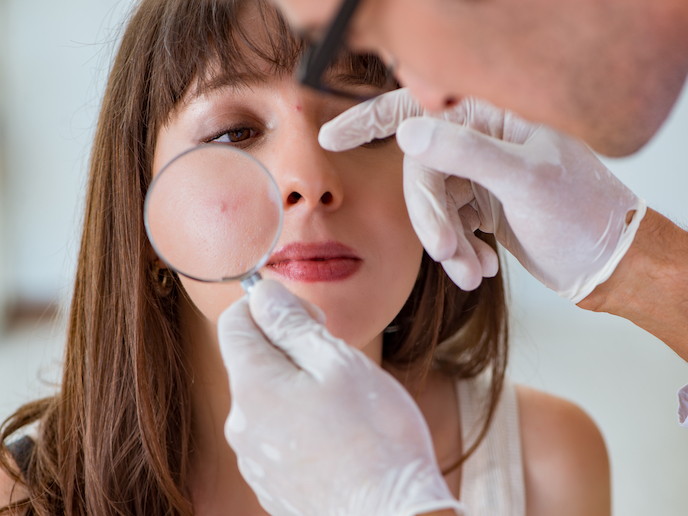Improved acne care with new digital assessment tool
Despite being the eighth most common diagnosis globally, acne assessment scales use subjective terms such as ‘some’ or ‘many’ to quantify the presence of lesions. With more than 25 different scales, these are inexact. Furthermore, the wider context (age, gender, accompanying conditions such as hormonal disorders, nutrition, genetic factors and psychosocial elements) is generally not taken into account. Clinicians have to exercise their best judgment based on their own experience and previous cases, making it difficult to monitor treatment plans consistently over time and over different points of care. With EU support, and in conjunction with partner hospitals, the ScanZ project was able to improve a pre-existing cheap and effective tool. As well as enabling a standardised acne assessment, the tool also enhances tracking along the care pathway. This results in patients getting the right treatment, at the right time and place, as well as becoming active participants in their condition’s management. Product and platform ScanZ consists of a tablet-based software application and handheld scanner. The scanner uses a specialised light technique, known as multispectral imaging, to read skin characteristics. In addition to counting lesions, the underlying algorithms quantify severity using features such as gland activity, oiliness and pigmentation, providing an objective assessment. The combined information is then made available to healthcare practitioners. The system has been developed to offer optimum management across the whole care pathway. For example, it can be used by pharmacists to select the most appropriate over-the-counter medication, as well as by secondary care providers to record history and disease progression using the standardised assessment. In practice, this means that nurses can perform follow-ups instead of dermatologists. To date, the system has been demonstrated at Harrogate and District NHS (National Health Service) Foundation Trust in the United Kingdom. The study protocol has been approved by the NHS Ethics committee and preliminary staff training has been undertaken in preparation for the clinical study. “ScanZ represents an important contribution for the enhancement of acne care. Indeed, it was recognised in an NHS report as a solution for some challenges related to treatment, including the overuse of antibiotics and the problem of antimicrobial resistance,” says project coordinator Mr Sava Marinkovic. Self-care ScanZ enables patients to get the right acne treatment at the earliest time, avoiding some of the long-lasting negative impacts, such as physical scarring or psychological distress. Monitoring their own skin through an app extension of the core platform, enables patients to self-manage their health – a goal of the EU’s healthcare strategy. Allied to this is the project’s contribution to the EU’s goal of integrated healthcare by introducing the technology at multiple care points, from pharmacy to primary care, and hospitals to clinics. This reduces treatment visits and avoids repetition of ineffective treatment. The first ScanZ product, a tablet-based analysis tool, is currently undergoing final preparations before submission as a Class IIa medical device. Additional imaging algorithms and the scanner will be available sometime after 2020, on completion of the clinical studies. Marinkovic says: “The initial focus is to ensure the product meets the needs of patients. Afterwards, we will incorporate more of the data/algorithmic aspects and hardware. Given that acne is a class of general inflammatory diseases, we plan to later focus on other related diseases such as rosacea, psoriasis and eczema.”
Keywords
ScanZ, acne, inflammatory disease, skin disorder, algorithms, scanner, monitoring, self-care, diagnosis, care pathway, treatment







